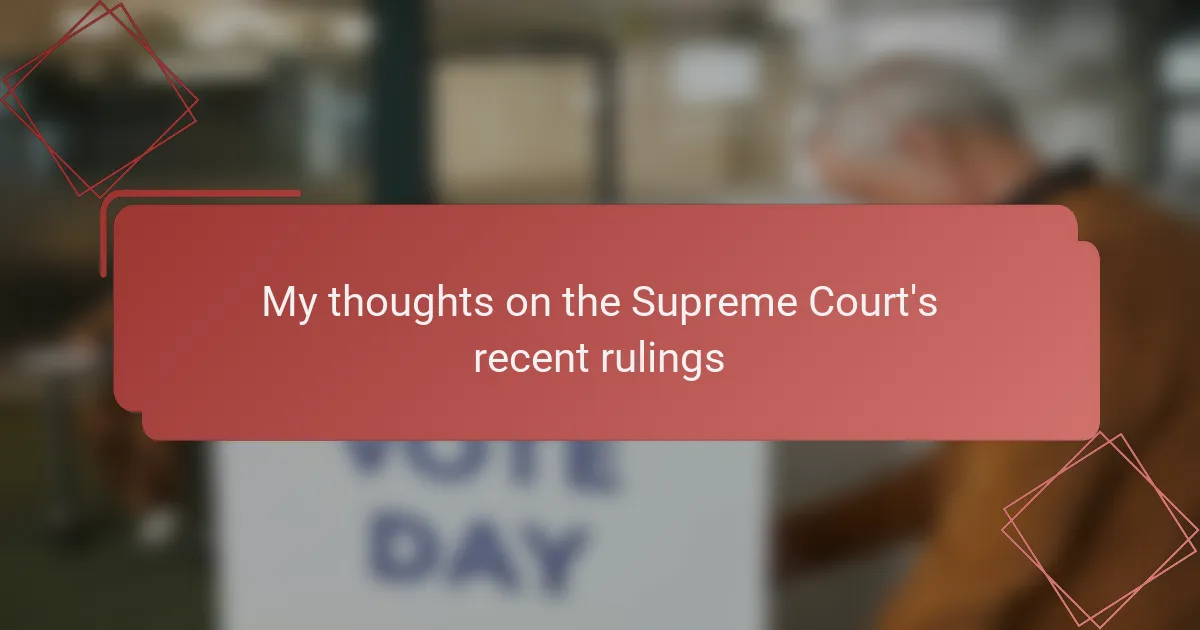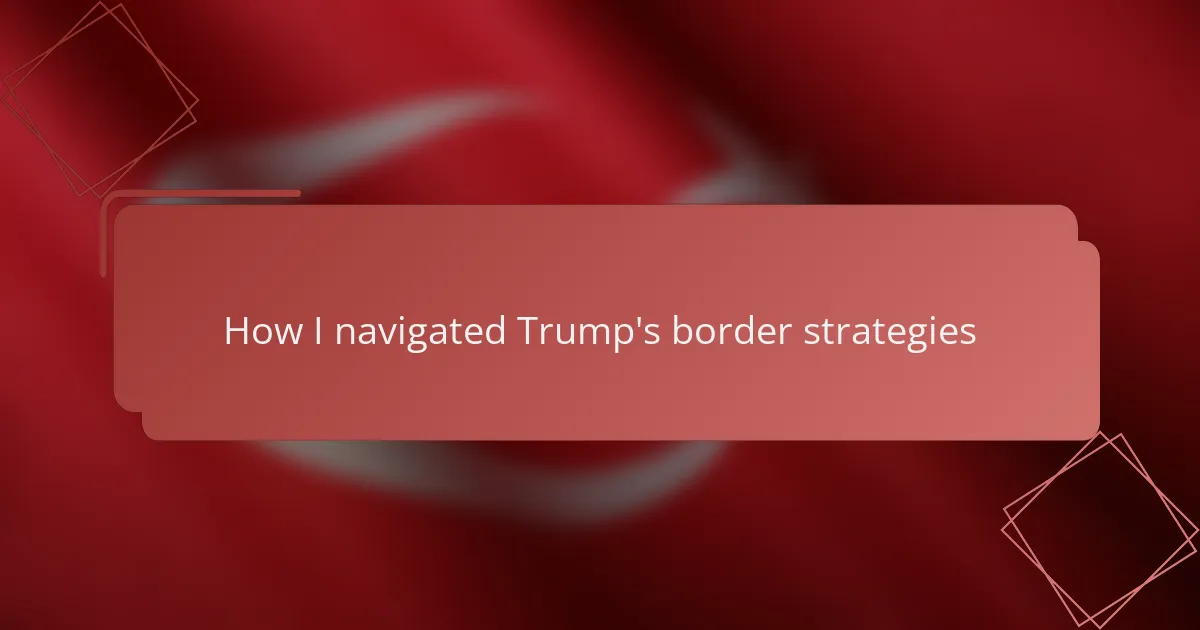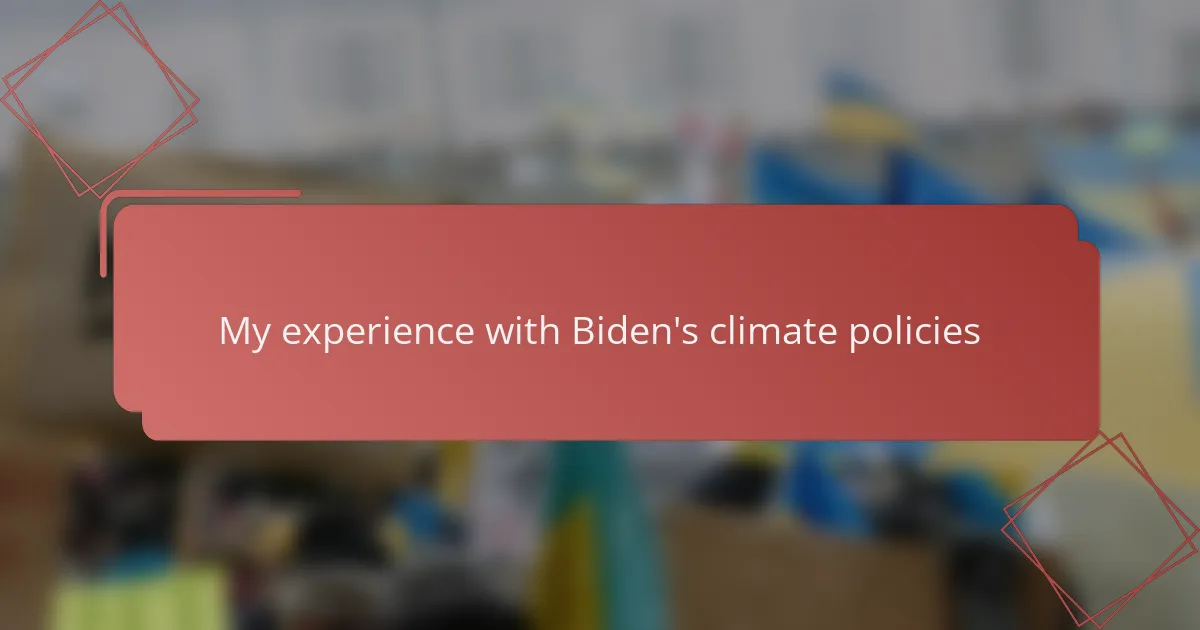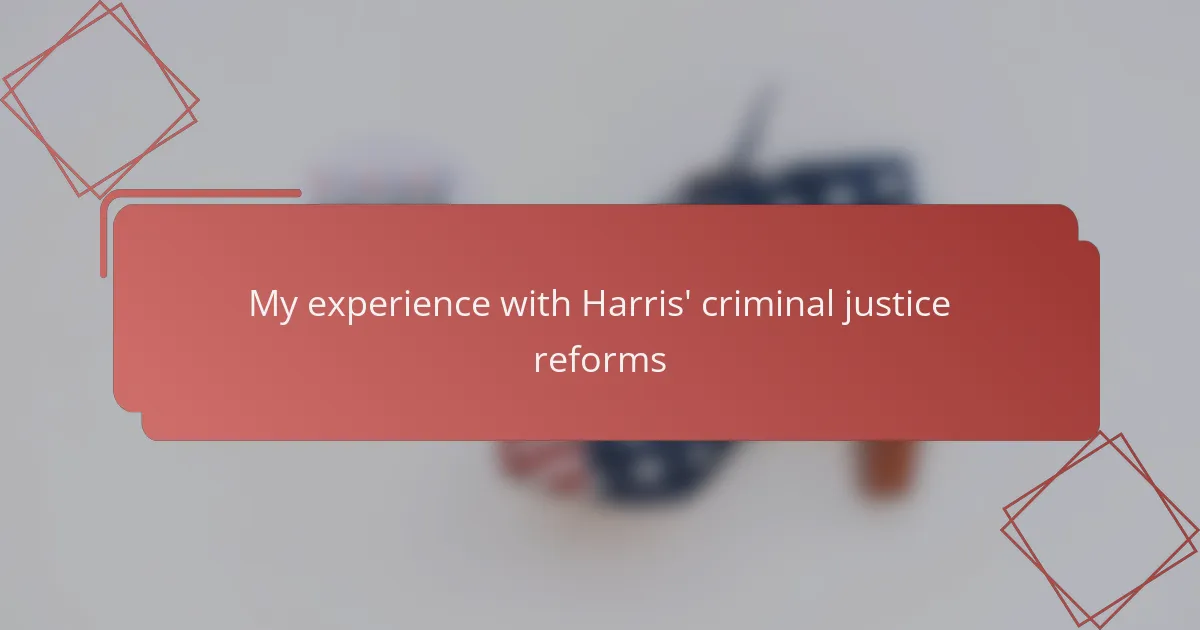Key takeaways
- Political satire effectively highlights absurdities in politics, encouraging deeper reflection through humor.
- Supreme Court rulings often become cultural flashpoints, igniting public debate and satire that reveal societal tensions.
- Satire makes complex legal issues relatable, turning dry topics into accessible conversations for broader audiences.
- The emotional impact of political decisions can amplify public opinion, with satire providing a lens for collective frustration and insight.
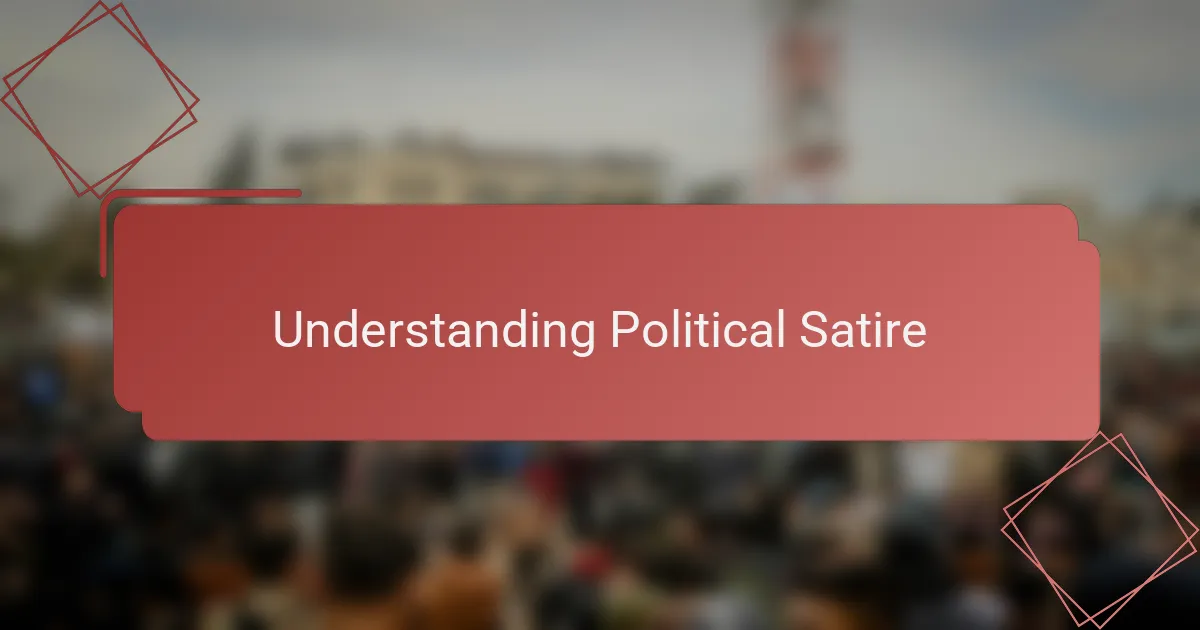
Understanding political satire
Political satire, to me, is like holding up a funhouse mirror to the world of politics—it exaggerates, distorts, and highlights the absurdities we sometimes miss. Have you ever found yourself laughing uneasily at a joke that also made you think? That mix of humor and critique is what makes satire so powerful.
I remember the first time a satirical sketch made me reconsider my stance on a political issue. It wasn’t just entertainment; it was an invitation to dig deeper beneath the surface. Don’t you find that sometimes a clever satire can reveal truths more sharply than a serious debate ever could?
At its core, political satire relies on irony, wit, and sometimes biting humor to challenge authority and question prevailing narratives. It’s a delicate balance—too subtle, and the point gets lost; too blunt, and it turns into mere mockery. That line is what keeps satire engaging and relevant.
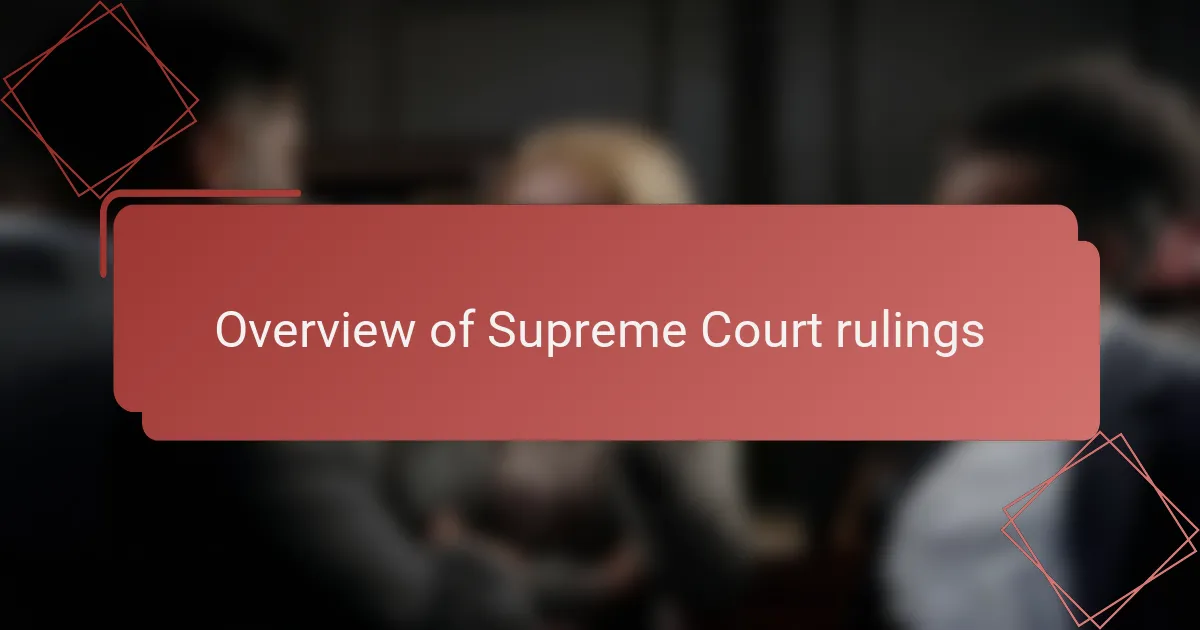
Overview of Supreme Court rulings
The recent Supreme Court rulings have certainly stirred the pot, haven’t they? Each decision seems to carry a weight that goes beyond just legal precedent—it feels like a direct commentary on the political climate itself. From what I’ve observed, these rulings aren’t just dry legal jargon; they often hold a mirror up to societal tensions and shifting values.
I recall the moment I read the headline about one particular ruling and thought, “This could change everything.” It made me wonder how much the Court’s composition influences its choices, and whether these decisions reflect genuine justice or political strategy. Don’t you sometimes feel that the courtroom drama is almost as theatrical as the satire we see on late-night shows?
What stands out to me is how these rulings often spark fierce debates that spill far beyond the courtroom walls. They become cultural flashpoints, exposing divisions and sparking satire that highlights the seriousness—and sometimes the absurdity—of the issues at hand. It’s like the Supreme Court’s pen is wielding a double-edged sword, shaping law and fueling political satire all at once.
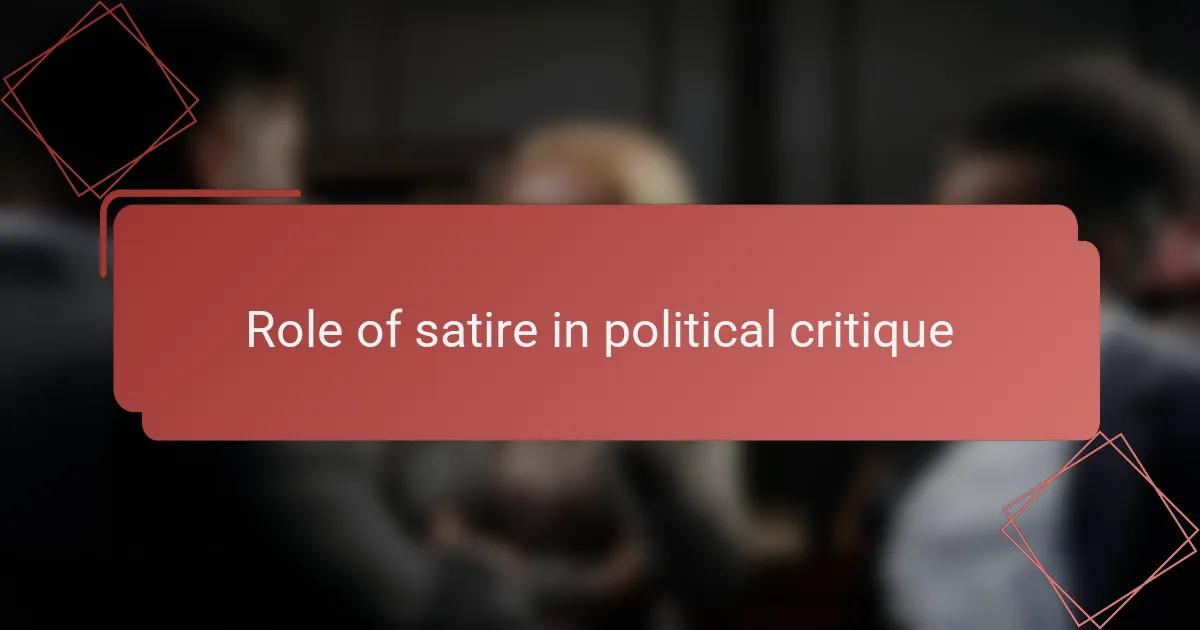
Role of satire in political critique
Satire acts as a mirror, sometimes cracking and warping, to reflect the absurdities within political decisions. From my experience reading satirical pieces on recent Supreme Court rulings, I’ve seen how humor and irony can spotlight contradictions that serious discourse often ignores, making complex legal outcomes accessible and emotionally resonant.
When I first encountered a biting satire on a controversial ruling, it was like a light bulb went off. The sharp wit didn’t just entertain—it provoked a deeper emotional response that pure facts couldn’t achieve. This blend of humor and critique makes satire an essential tool for public engagement.
- Highlights inconsistencies and flaws in judicial decisions
- Breaks down complex legal jargon into relatable satire
- Encourages public scrutiny and debate through humor
- Offers an emotional entry point into otherwise dry topics
- Empowers voices that might feel sidelined in traditional political analysis
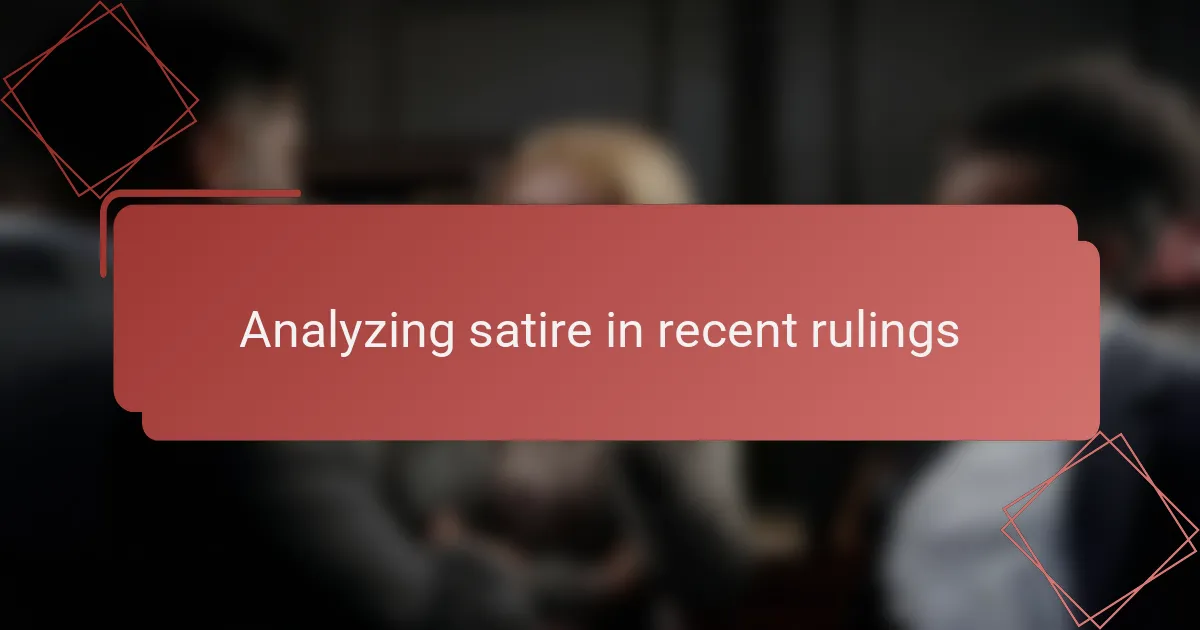
Analyzing satire in recent rulings
Satire in recent Supreme Court rulings feels almost like a wink from the sidelines—pointing out the irony in decisions that, on the surface, seem solemn but carry undercurrents of contradiction. Have you noticed how some rulings almost invite mockery by their own contradictions? That tension between the Court’s authority and the humor it inspires is fascinating to me.
Sometimes, the satire feels so sharp it’s as if the rulings themselves are a script for a political satire sketch—highlighting loopholes, paradoxes, or unexpected consequences that no legal brief could capture. Reading through those satirical takes, I felt a mixture of frustration and amusement, realizing how humor can dismantle the facade of seriousness and expose the core issues beneath.
What strikes me most is how satire not only dissects the rulings but also amplifies public discourse, turning otherwise dense legal opinions into conversations accessible to everyone. Isn’t it remarkable how a clever joke or a satirical cartoon can open the door to questioning and understanding complex judicial decisions better than many formal analyses? That’s the magic of satire—making the weighty feel personal and the distant feel immediate.
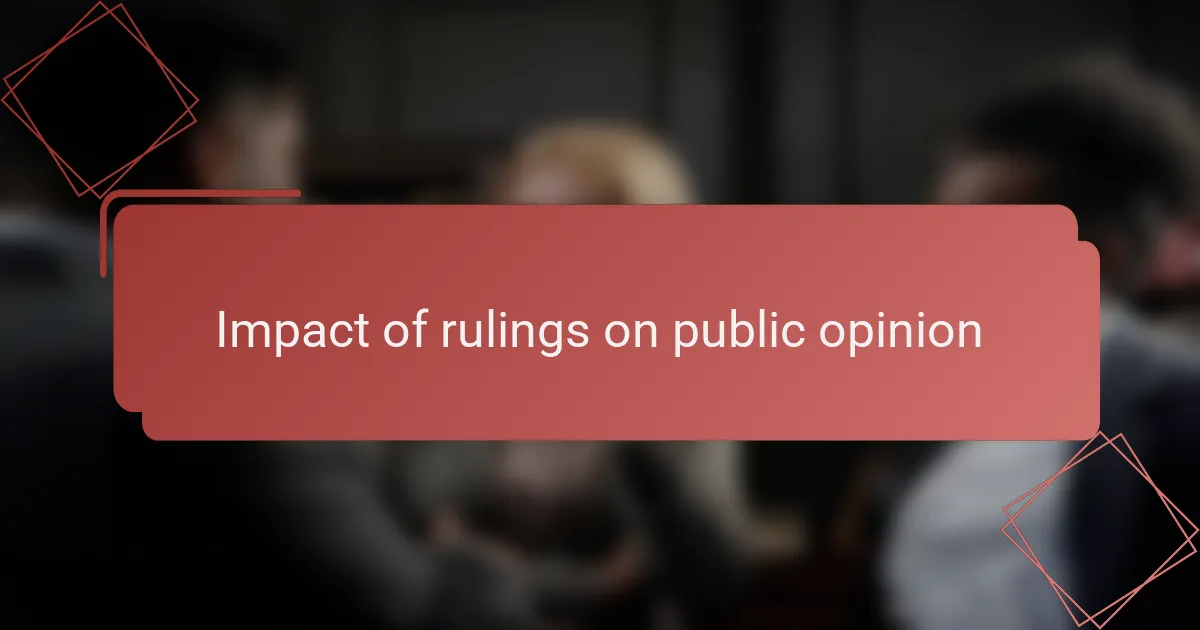
Impact of rulings on public opinion
Public opinion often swings like a pendulum in the wake of Supreme Court rulings. I’ve noticed how a single decision can spark immediate reactions, from outrage to relief, shaping conversations at dinner tables and on social media alike. It makes me wonder—how much do these rulings truly shift our beliefs, or do they just amplify what was already simmering beneath the surface?
What fascinates me is the way public trust in the Court can waver depending on the perceived fairness of its decisions. After certain rulings, I’ve observed friends becoming more skeptical, questioning whether justice is really blind or tinted by political agendas. Have you ever found yourself reevaluating your faith in institutions because of a controversial verdict?
These rulings don’t just influence opinions; they can deepen divisions or, occasionally, foster unexpected unity. From my experience, the emotional charge they carry often explains why satire around them hits so hard—because it taps into those raw, shared feelings, turning legal jargon into something everyone can feel and debate. Isn’t it intriguing how a courtroom decision can ripple across the cultural landscape, reshaping public sentiment in ways that go far beyond the legal texts?
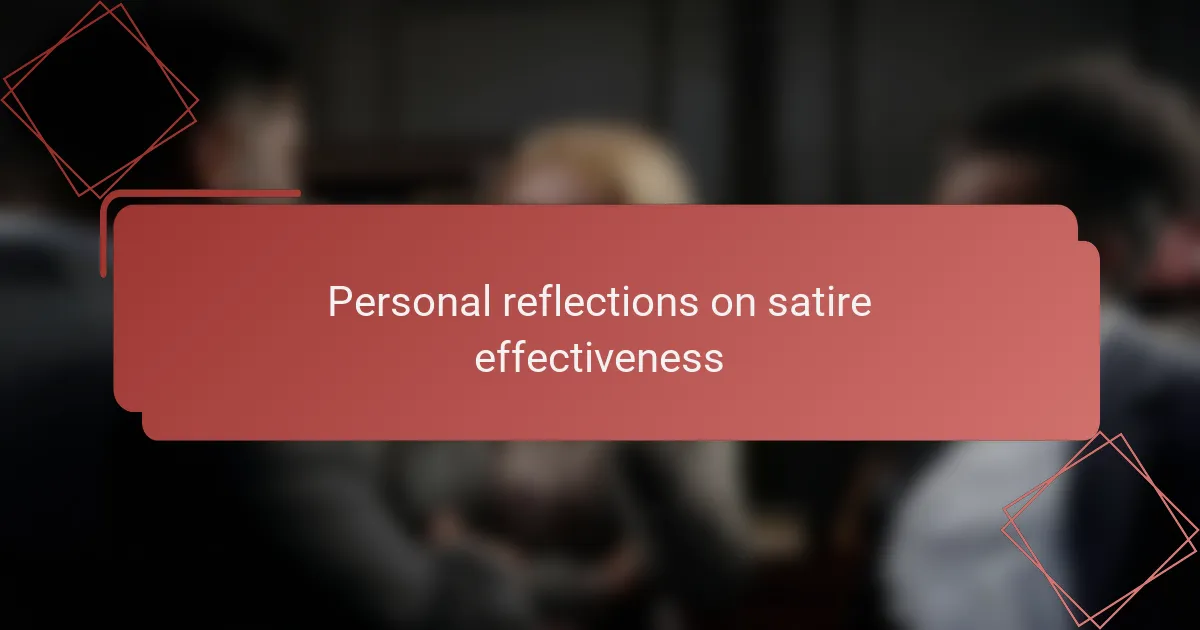
Personal reflections on satire effectiveness
When I think about the effectiveness of satire, I often recall moments where a clever joke cut through my own skepticism and made me see a political issue in a new light. Have you ever had satire surprise you like that—making a point stick precisely because it was funny, not just factual? That blend of laughter and insight is, in my view, what gives satire its unique strength.
Sometimes, satire feels like a secret handshake for those willing to look beneath the surface. From my experience, it doesn’t just entertain; it nudges us to question accepted truths. Isn’t it remarkable how a satirical line can make a complex Supreme Court ruling feel suddenly relatable, even personal?
But satire isn’t flawless. I’ve noticed it can lose its bite if it becomes too predictable or lazy, turning into mere mockery without meaningful critique. That makes me wonder—how often do we dismiss satire simply because it challenges us or because it appears too sharp? In my experience, the most effective satire strikes a balance, making us laugh while pushing us to think harder.
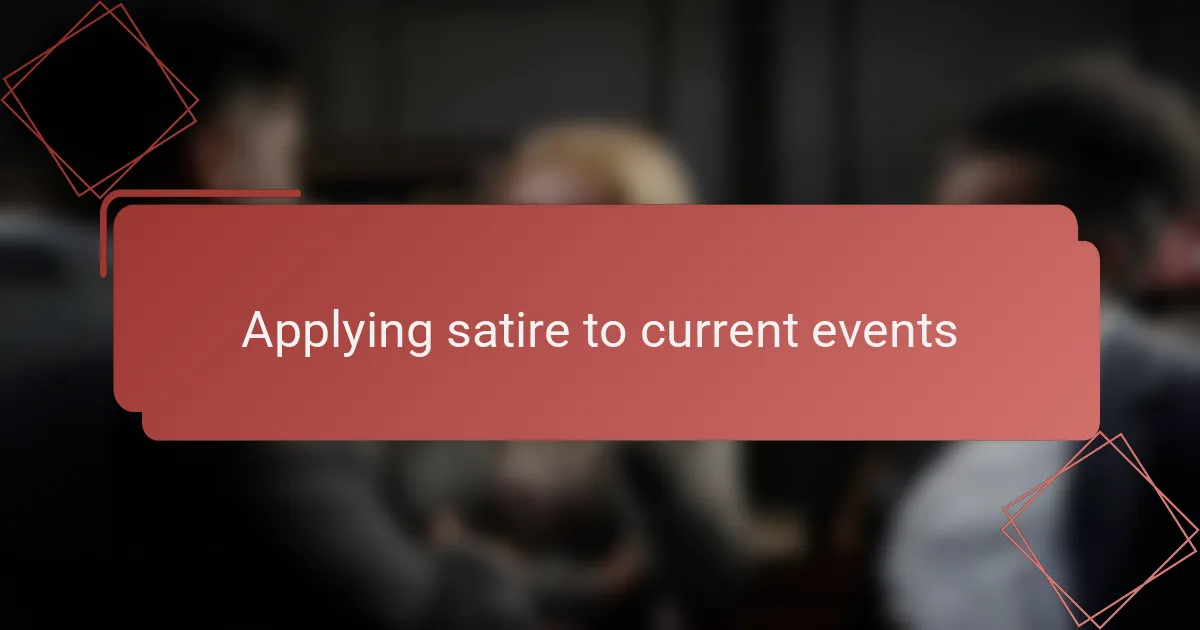
Applying satire to current events
Applying satire to current events feels to me like turning the news into a stage play where the actors sometimes forget their lines—or deliver them with such irony that you can’t help but laugh and cringe at the same time. Have you ever caught yourself chuckling at a satirical take that perfectly nailed the absurdity of a headline? That moment where humor and reality collide is where satire truly shines.
I remember watching a satirical commentary on a recent ruling and thinking, “This is exactly what everyone’s feeling but no one’s saying out loud.” It’s amazing how satire can give voice to collective frustrations and make complicated political drama more relatable. Sometimes it’s the jokes that cut through the noise, making dense topics feel surprisingly accessible.
What intrigues me most is how satire doesn’t just comment on events—it invites us to see them from a fresh angle, revealing contradictions and hidden layers. Isn’t it fascinating how a well-crafted punchline can provoke reflection as effectively as any serious editorial? In my experience, applying satire to current events keeps the conversation lively and grounded in shared human experience.
